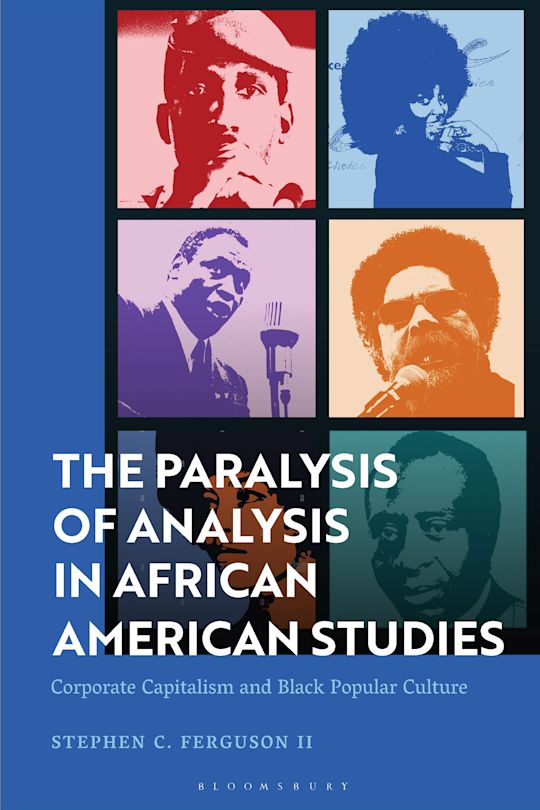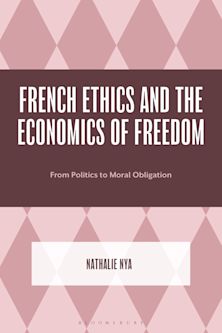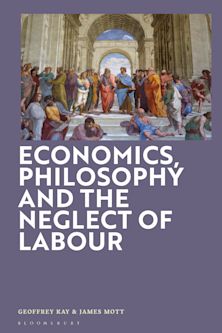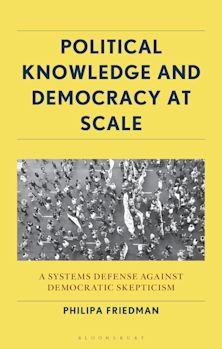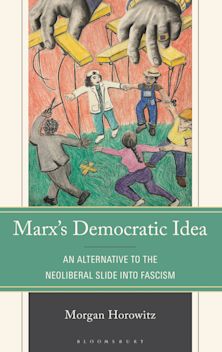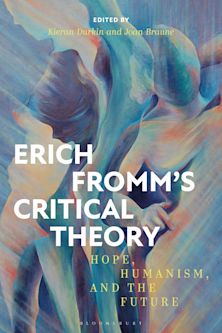- Home
- ACADEMIC
- Philosophy
- Social and Political Philosophy
- The Paralysis of Analysis in African American Studies
The Paralysis of Analysis in African American Studies
Corporate Capitalism and Black Popular Culture
The Paralysis of Analysis in African American Studies
Corporate Capitalism and Black Popular Culture
You must sign in to add this item to your wishlist. Please sign in or create an account
Description
Stephen C. Ferguson II provides a philosophical examination of Black popular culture for the first time. From extensive discussion of the philosophy and political economy of Hip-Hop music through to a developed exploration of the influence of the postmodernism-poststructuralist ideology on African American studies, he argues how postmodernism ideology plays a seminal role in justifying the relationship between corporate capitalism and Black popular culture.
Chapters cover topics such as cultural populism, capitalism and Black liberation, the philosophy of Hip-Hop music, and Harold Cruse's influence on the “cultural turn” in African American studies. Ferguson combines case studies of past and contemporary Black cultural and intellectual productions with a Marxist ideological critique to provide a cutting edge reflection on the economic structure in which Black popular culture emerged. He highlights the contradictions that are central to the juxtaposition of Black cultural artists as political participants in socioeconomic struggle and the political participants who perform the rigorous task of social criticism.
Adopting capitalism as an explanatory framework, Ferguson investigates the relationship between postmodernism as social theory, current manifestations of Black popular culture, and the theoretical work of Black thinkers and scholars to demonstrate how African American studies have been shaped.
Table of Contents
Introduction
Part I. The Corporatization of Black Culture
1. “Much To Do About Nothing”: Black Popular Culture, Inc.
2. The James Brown Theory of Liberation: Black Capitalism, Bourgeois Cosmopolitanism and Black Liberation
Part II. On Hip-Hop Music: Philosophical Considerations on Political Economic Contradictions
3. Listening to the Future in the Present: The Philosophy of Hip-Hop Music
4. The Political Economy of Hip-Hop Music
Part III. Philosophy of African American Studies: Postmodernist Analysis and Political Paralysis
5. The “Cultural Turn” in African American Studies: From Harold Cruse to “Black Marxism”
6. Class Struggle in African American Studies:
7. The Paralysis of Poststructuralist PostmodernismAnalysis
Notes
Bibliography
Index
Product details

| Published | 21 Sep 2023 |
|---|---|
| Format | Ebook (Epub & Mobi) |
| Edition | 1st |
| Extent | 256 |
| ISBN | 9781350368965 |
| Imprint | Bloomsbury Academic |
| Illustrations | 2 bw illus |
| Publisher | Bloomsbury Publishing |
About the contributors
Reviews
-
The Paralysis of Analysis in African American Studies provides a searing critique of the role political economy and socially irresponsive cultural entrepreneurs play in stifling and under-developing African American culture simply for gain. Stephen C. Ferguson II's honest assessment takes no prisoners! A true must have for anyone interested in how cultural analysis should be done.
Anthony Neal, Beverly B. & Gordon W. Gulmon Humanities Scholar and Associate Professor of History, Mississippi State University, USA
-
Through sharp, rigorous, and careful analysis, Ferguson draws our attention back to an intellectual project rooted in struggle, one grounded in our “radical each-otherness.” Ferguson's dialectical approach does not direct us toward the doom of despair, but instead, he reminds us that balancing the truth of the current moment of danger with the limits of the tools and instruments of this world is the place of possibility and creativity.
Johari Jabir, Associate Professor, Department of Black Studies, University of Illinois, USA
-
Ferguson effectively demonstrates why he continues to be the foremost scholar in the philosophy of African American Studies. He presents the most pivotal scholarly contribution on the matter of Black popular culture to date. Ferguson's dialectical materialist approach provides valuable insights into the broad range of Black cultural/ideological tendencies today. By scrutinizing the class contradictions within the Black community, he examines Black cultural production and its relationship to the political economic interest of corporate capitalism. This book is a must read for scholars, cultural critics and significantly activists that are engaged as cultural workers in ongoing mass struggles.
John H. McClendon III, Professor of Philosophy, Michigan State University, USA

ONLINE RESOURCES
Bloomsbury Collections
This book is available on Bloomsbury Collections where your library has access.









